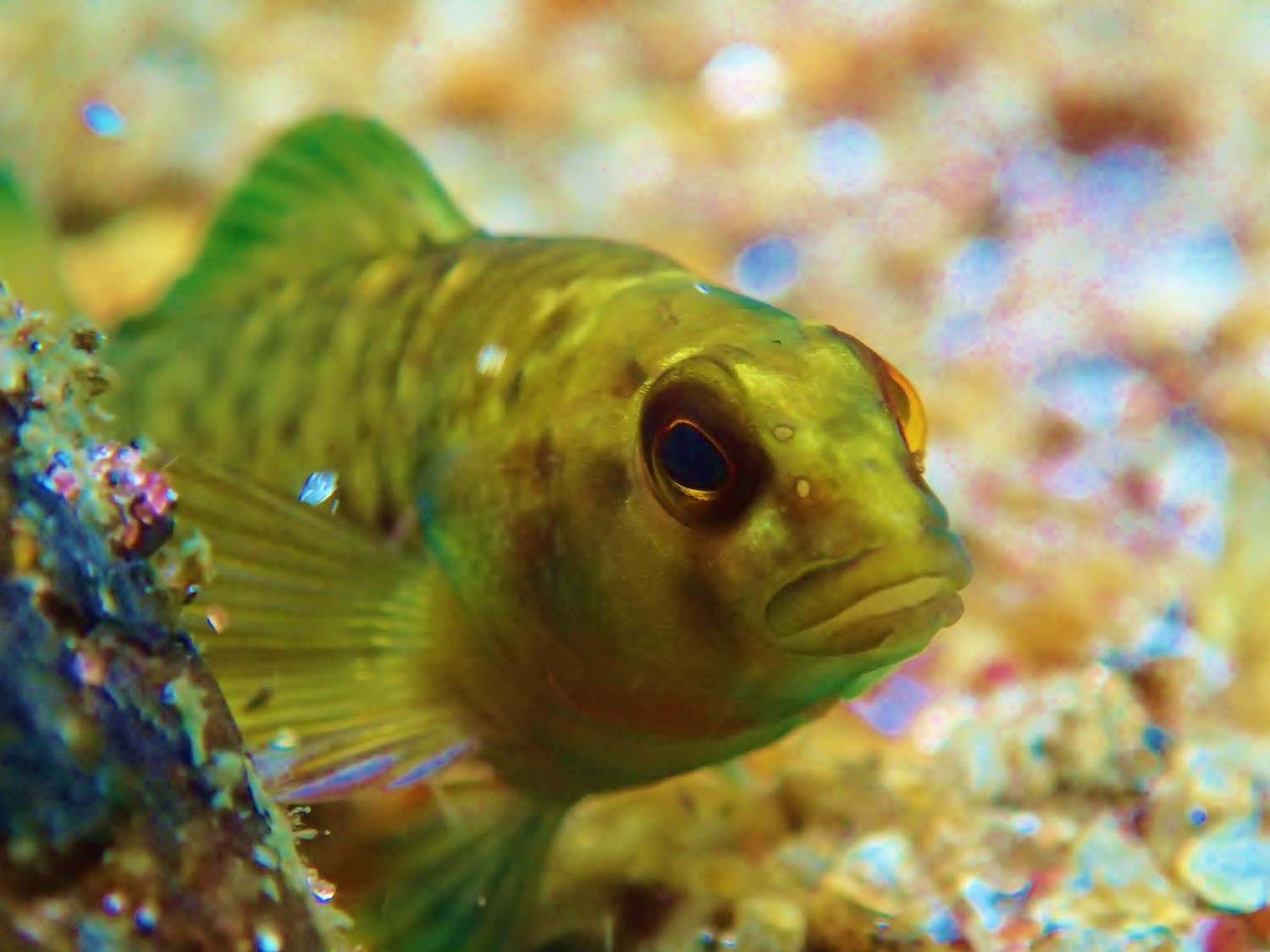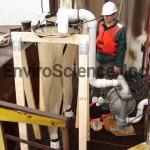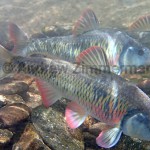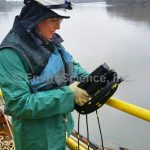316(b) IMPINGEMENT & ENTRAINMENT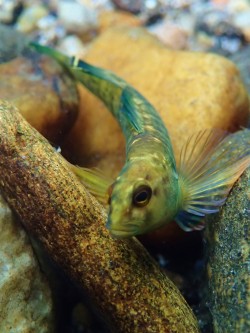
Withdrawing cooling water can affect aquatic organisms, including phytoplankton, zooplankton, fish, crustaceans, shellfish, and many other forms of aquatic life. The U.S. Environmental Protection Agency (USEPA) estimates the nation’s industry withdraws about 300 billion gallons of cooling water each day from waters of the U.S.
Section 316(b) of the Clean Water Act through the National Pollution Discharge Elimination System (NPDES) program establishes requirements and standards for the location, design, construction, and capacity of cooling water intake structures. The rule covers about 1,065 existing facilities that withdraw at least 2 million gallons per day of cooling water.
These studies look into two forms of potential impacts:
- IMPINGEMENT – When adult organisms are trapped onto the screens as water is drawn into a facility’s cooling system.
- ENTRAINMENT – When larval fish and other organisms are drawn into the facility through the traveling screen and impacted by plant processes.
Existing facilities that withdraw at least 25% of their water from an adjacent water body exclusively for cooling purposes and have a design intake flow of greater than 2 million gallons per day (mgd) are subject to an upper limit on impingement mortality. Existing facilities that withdraw at least 125 mgd are required to conduct studies to help permitting authorities to determine whether and what site-specific controls, if any, would be required to reduce the mortality of aquatic organisms. New units that add electrical generation capacity at an existing facility are required to add technology that is equivalent to closed-cycle cooling.
ENVIROSCIENCE OFFERS SPECIALIZED 316(b) EXPERIENCE & TECHNICAL COMPETENCE
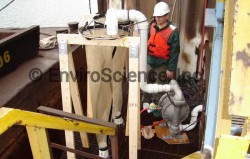 EnviroScience is uniquely qualified to perform 316(b) surveys. We have extensive experience in aquatic science and the requirements of Clean Water Act Section 316(b) evaluations. Our biologists collect and identify adult fish as well as ichthyoplankton (larval fish) for impingement and entrainment studies and have the staff and equipment to perform simultaneous 316(b) studies for several facilities.
EnviroScience is uniquely qualified to perform 316(b) surveys. We have extensive experience in aquatic science and the requirements of Clean Water Act Section 316(b) evaluations. Our biologists collect and identify adult fish as well as ichthyoplankton (larval fish) for impingement and entrainment studies and have the staff and equipment to perform simultaneous 316(b) studies for several facilities.
Our biologists have completed multi-year projects throughout Ohio and Pennsylvania in the Ohio River basin, Delaware River, Great Lakes, and Chesapeake Bay. EnviroScience biologists have held scientific collecting permits in over 18 states including AL, NC, SC, KY, FL, TN, and MS.
EnviroScience works closely with private, state, and federal agencies to negotiate the most appropriate and efficient facility study plans. Study results determine whether the cooling water intake meets best technology available (BTA) criteria and whether equipment updates are needed.
Our 316(b) services include:
- Developing sampling protocol and collection methods, with a comprehensive health and safety plan
- Literature reviews of species within the Area of Influence (AOI)
- Ichthyoplankton collection and identification
- Collecting and identifying adult fish
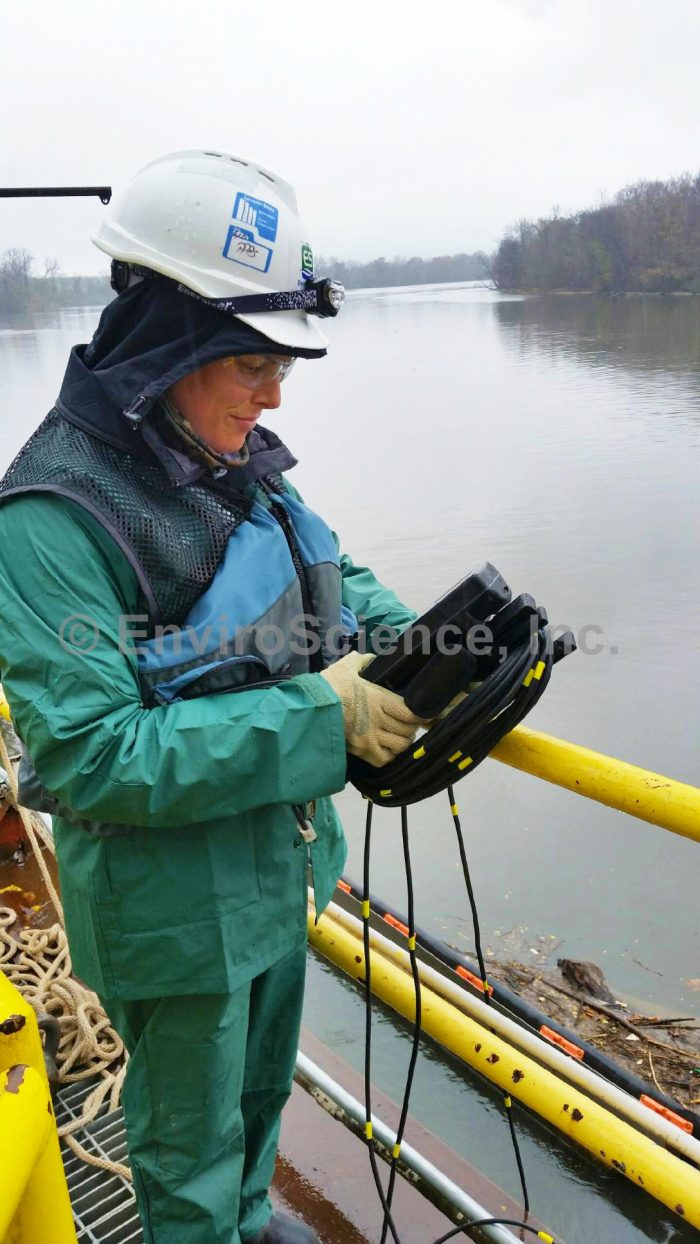 Developing appropriate Representative and Important Species (RIS) list using available data sources and infield data
Developing appropriate Representative and Important Species (RIS) list using available data sources and infield data
- Using multi-metric biotic indices such as the Index of Biotic Integrity to assess community structure and function, as well as community responses to elevated temperatures
EnviroScience maintains an inventory of state-of-the-art technology and field equipment for projects of all sizes. This includes a large fleet of sampling and diving vessels (more than 15 boats and 25 vehicles for any condition), electrofishing gear for any application, water quality meters, work trailers, GPSs, depth/temperature and flow survey equipment, extensive diving and underwater construction equipment, and more.
In addition to our equipment, EnviroScience boasts one of the most experienced and heavily utilized bioassay laboratories in the region.
316(a) THERMAL IMPACT STUDIES
Section 316(a) of the Clean Water Act provides that thermal dischargers can be granted less stringent alternate thermal limits if they can demonstrate that the current effluent limitations, based on water quality standards, are more stringent than necessary to protect the aquatic organisms in the receiving water body.
Usually submitted in the form of a variance request, the 316(a) demonstration must document completely and comprehensively that alternate thermal effluent limitations will not adversely influence the balance of the indigenous aquatic community in the receiving water body, or on any other designated water use. These demonstrations commonly take one of three forms:
- Demonstrating a lack of prior appreciable harm from the facility on aquatic resources based on field studies assessing impact of
thermal discharge on indigenous aquatic communities (Normally requires an extensive pre-operational monitoring program.)
- Protecting Representative and Important Species (RIS), which are designated by the reviewing agencies and, if protected, should assure the protection and propagation of the aquatic resources (predictive study based on modeling, literature review, field sampling).
- Biological, engineering, and other data (combination of type 1 and type 2).
ENVIROSCIENCE OFFERS COMPREHENSIVE 316(A) SERVICES
EnviroScience is a national leader in assessing aquatic cultures and has a team of fisheries biologists with specialized experience in the design and implementation of thermal impact studies.
Our 316(a) services include:
- Evaluating decision-making criteria leading to a comprehensive study plan designed to meet those criteria;
- Development of an appropriate Representative and Important Species (RIS) list using available data sources and infield data;
- Using multi-metric biotic indices such as the Index of Biotic Integrity to assess community structure and function, as well as community responses to elevated temperatures;
- Using thermal tolerance data, field sampling, and modeling results to determine protective thermal criteria.
Call our 316(a) and 316(b) evaluation experts today for a quote at (800) 940-4025.
In Action
Need help with your project?
Our experts are here to discuss your needs and how we can help you move your project forward. Fill out the form below for more information on our services or to request a quote, and we’ll get back to you within 24 hours. If you need a response within an hour or less, please call us at 800-940-4025.
Few environmental firms in the country retain EnviroScience’s degree of scientific know-how, talent, and capability under one roof. The diverse backgrounds of our biologists, environmental engineers, scientists, and divers enable us to provide comprehensive in-house services and an integrated approach to solving environmental challenges—saving clients time, reducing costs, and ensuring high-quality results.
Our client guarantee is to provide “Excellence in Any Environment,” meaning no matter what we do, we will deliver on our Core Values of respect, client advocacy, quality work, accountability, teamwork, and safety. EnviroScience was created with the concept that we could solve complex problems by empowering great people. This concept still holds true today as our scientists explore the latest environmental legislation and regulations and incorporate the most up-to-date technology to gather and report data.
EnviroScience expertise includes but is not limited to: aquatic survey (including macroinvertebrate surveys and biological assessments); ecological restoration; ecological services (including impact assessments, invasive species control, and water quality monitoring); emergency response; engineering and compliance services; endangered mussel surveys; laboratory and analysis; stormwater management; threatened and endangered species; and wetlands and streams (including delineation and mitigation). Further, EnviroScience is one of the few biological firms in the country that is a general member of the Association of Diving Contractors International (ADCI) and offers full-service commercial diving services.
